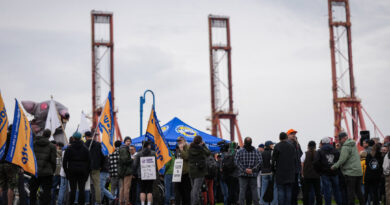Australia strongly criticizes China’s aggressive actions towards the Philippines in the South China Sea.
A China Coast Guard vessel collided with the Philippine Coast Guard’s Teresa Magbanua at Sabina Shoal on Aug. 31.
The Australian government has denounced the repeated aggressive actions of the Chinese military towards their Philippine counterpart in the South China Sea.
“Australia shares the Philippines’ condemnation of this destabilizing and unacceptable conduct,” said Australia’s Department of Foreign Affairs and Trade (DFAT).
“It poses serious risks of harm to crew, and undermines recent commitments to de-escalate tensions in the South China Sea.”
The DFAT’s statement comes in response to a China Coast Guard (CCG) vessel ramming into the Philippine Coast Guard’s (PCG) largest ship, Teresa Magbanua, at Sabina Shoal, also known as Xianbin Jiao, on Aug. 31.
This incident marks the fifth maritime confrontation between the two countries at the disputed territory in a month.
The Philippine ship, stationed at Sabina Shoal since April, sustained damage but no crew members were injured.
Manila stated that the Chinese Coast Guard vessel “intentionally rammed and collided with the BRP Teresa Magbanua three times, despite no provocation from the Philippine Coast Guard.”
However, the Chinese Communist Party blamed the Philippines for the incident, claiming that the Philippine vessel was “illegally” present in Chinese territory.
Meanwhile, Australia urged China to cease its actions and abide by the United Nations Convention on the Law of the Sea (UNCLOS).
“Australia calls for restraint and reiterates that the 2016 South China Sea Arbitral Award is final and legally binding on the parties,” DFAT stated.
The New Zealand embassy in Manila also voiced concern about the Chinese military’s actions and called for adherence to UNCLOS.
“This recent incident, involving a CCG vessel colliding with a Philippine vessel, is deeply concerning and follows a recent pattern of risky and destabilizing actions in the region,” it said in a statement.
Ambassadors from various countries, including the United States, the UK, and Japan, denounced Beijing’s actions while supporting their Philippine ally.
Although the Chinese foreign ministry spokesperson mentioned that Beijing is willing to engage in dialogue with the Philippines through diplomatic channels, she also urged the Philippines to remove its vessels from the area.
However, the Chinese military seems to be escalating its aggression in both the sea and air in the region.
The Philippine Navy reported spotting 203 Chinese ships in the South China Sea from Aug. 27 to Sept. 2, higher than the 163 vessels seen from Aug. 20 to Aug. 26.
On Aug. 19, a Chinese fighter jet was seen conducting dangerous maneuvers and deploying flares multiple times near a Philippine aircraft.





